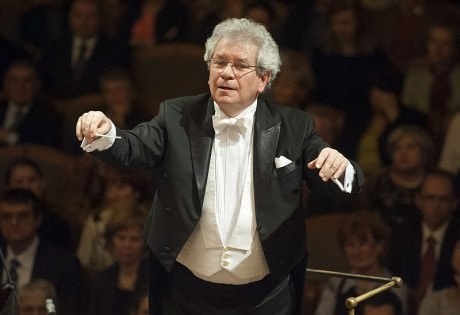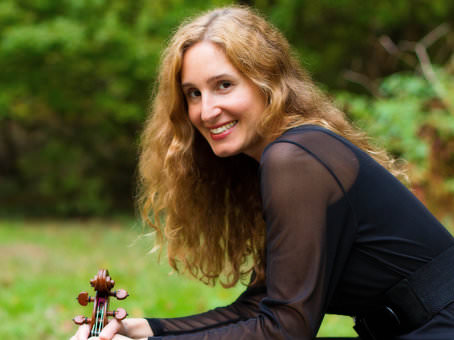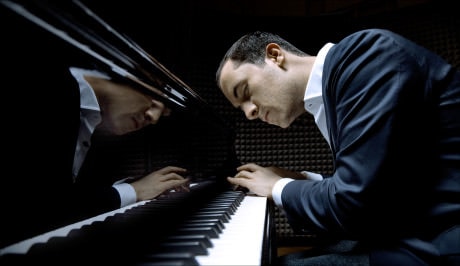The National Symphony Orchestra is doing one of its best guest conductors, Jiri Belohlavek, mostly proud this week with music from his Czech homeland.

In the first of its three concerts this week, the NSO shined under Belohlavek in a piece it has never performed before – the Symphony No. 6 by Bohuslav Martinu. Dating from 1955, the sixth and last symphony of the lesser-known Martinu is a marvelously entertaining synthesis of lyricism and drama.
Extremely colorful if complex modulations from one chord to another provide welcome surprises along the way. If you go and hear it and find its “modern” and slightly atonal – that is, not always appearing to sit in a given key – quality initially off-putting, I suggest you just imagine it’s background music for a movie and its impact will kick in.
In fact, Martinu subtitled this symphony by what translates as “Symphonic Fantasies” without specifying a particular “program” or story. It’s great music for the individual imagination. It’s useful to know that although Martinu was from Prague, he began his sixth symphony in America and finished it in Paris. Belohlavek conducted it from memory, as I believe he does all music by native Czechs.
Two pieces of outstanding work by NSO musicians in particular aided the performance. Much modern or atonal music suffers from an overly bombastic quality where brass instruments are allowed to overrule the rest of the orchestra in confusing or even maddening passages. Here the NSO’s trumpets and French horns did a great job of insinuating their tone color and volume into the rest of the orchestral timbre. Certain specifications by the composer for mutes and likely other directions in the score helped with this, but the execution in performance was first-rate.

In addition, terrific solo work by NSO Concertmaster (or principal violinist) Nurit Bar-Josef added immensely to the flavor of the symphony. She played her solo lines with a somewhat darker, more telling tone than can be seen in this generally fine performance of the Martinu by the Spanish Radio and Television Symphony Orchestra, where the lead violinist takes a sweeter approach that I think would be more applicable to a standard, mid-19th century symphony.
The rest of the NSO program took up pieces that are more frequently heard in concert halls, with mixed results. Young Russian-German pianist Igor Levit, who has recently been making a splash on the international stage and in recordings, performed Beethoven’s Piano Concerto No. 5, universally known as the Emperor Concerto, under Maestro Belohlavek’s baton.
Mr. Levit has great facility at the keyboard but he periodically elects to wash the notes together in an almost impressionistic way that seems somewhat more appropriate for Debussy than Beethoven. It’s certainly a choice, but it seemed particularly not to work well in rapid downward passages of the left hand. Some of these passages constitute Beethoven’s rough humor if you can appreciate it, and one late theme in the Emperor is very akin to a dog chasing its tail. With the application of too much pedal it didn’t seem funny at all in Mr. Levit’s telling.
But Mr. Levit was extremely effective in two special aspects. At a couple of points the Emperor retreats into a “music box” form of tinkling, and the young pianist’s deliberate slow-down and fantastic touch in soft passages made these moments really come alive. He also essayed a gorgeous lyricism in the final theme of the slow second movement that surreptitiously morphs without a break into the third and final movement.

Also not completely satisfying was the NSO’s opening number, a performance of Mozart’s Symphony No. 38 in D major. Given that this symphony is nicknamed the Prague Symphony because Mozart composed it for the people of that city after they embraced The Marriage of Figaro to a greater extent than the more jaded denizens of Vienna – and given that Maestro Belohlavek today leads Prague’s top orchestra, the Czech Philharmonic – you’d expect an all-out performance for the honored guest.
Mozart has a particularly delightful way in the Prague Symphony of periodically kicking themes into a new gear – not really by speeding up the music overall but by goosing the rhythms of one, several or all the sections. But at one moment in the first movement, the first violins were a tick ahead of the sluggish-sounding remainder of the string sections at this key juncture. During the third movement, for a moment the back of individual sections did not seem exactly with the front at such points.
A slightly disturbing visual with the NSO is that for a Mozart piece, which does not require all of the personnel of the entire orchestra, one observes a few of the back players of certain sections appearing to “mail it in.” You certainly don’t see that with the Czech Philharmonic, which nearly tore the house down last year at George Mason University with unanimous fire from the strings, and you don’t see it with the Baltimore Symphony Orchestra, whose back chairs of the string sections appear to be overwhelmingly young conservatory graduates putting in a professional job every night.
There’s been recent commentary in the Washington area media about what is “wrong” with the National Symphony Orchestra as it searches for a new permanent music director starting in 2017. So much is right with the NSO that it shouldn’t let this kind of thing pass.
Running Time: Approximately two hours, including a 20-minute intermission.
The National Symphony will perform this program an additional two nights Tonight, on Friday, November 20 and Saturday, November 21, 2015 at 8 p.m. in the Concert Hall at the John F. Kennedy Center for the Performing Arts – 2700 F St. NW, Washington, DC. For tickets, call the Box Office at (202) 467-4600, or order them online.




